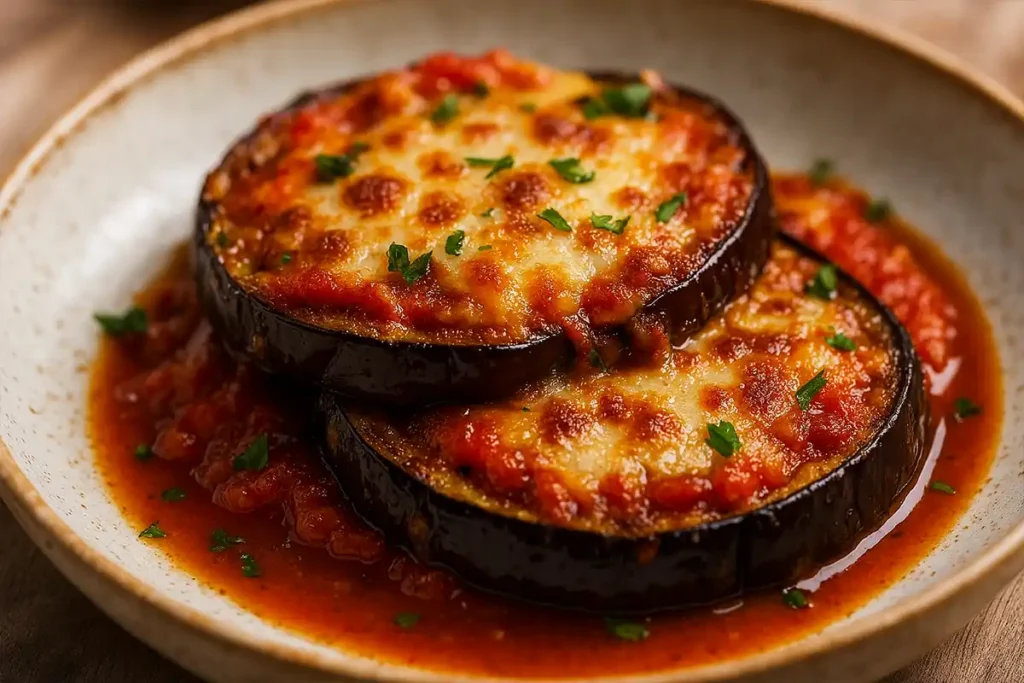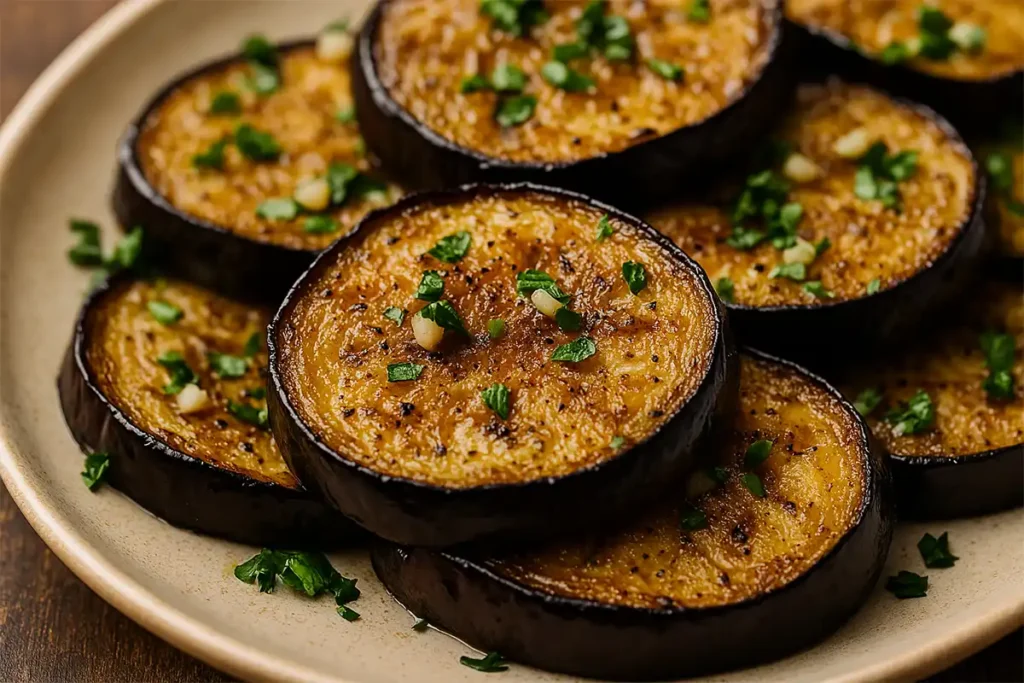Whether you’re a veggie lover or looking for new ways to enjoy healthy meals, eggplant recipes are a must-have in your recipe collection. This humble purple vegetable transforms into flavorful dishes across cultures, from Mediterranean to Asian cuisine. In this article, we’ll uncover the best eggplant recipes, explore why soaking eggplant makes a difference, reveal how Gordon Ramsay prepares it, and break down the surprising health benefits. Ready to give eggplant a starring role in your kitchen? Let’s dive in.
- What’s the Best Way to Eat eggplant recipes
The best way to enjoy eggplant depends on your taste and time, but one of the top methods is roasting. Roasting brings out a rich, caramelized flavor and silky texture. Slice it, brush with olive oil, season well, and bake at 400°F until golden. Other amazing methods include grilling for a smoky bite, stir-frying for quick meals, baking into casseroles like eggplant Parmesan, or mashing into spreads like baba ganoush. All of these eggplant recipes elevate the ingredient to its full potential.
- Why Do You Soak Eggplant Before Cooking?
Soaking eggplant slices in saltwater for 30 minutes before cooking helps draw out bitterness and excess moisture. This improves both taste and texture, especially for fried or baked eggplant recipes. Soaking also helps reduce oil absorption during frying, which makes for lighter, healthier meals. If you’re roasting or grilling, soaking can still enhance the texture and give more balance to the final dish.
- How Does Gordon Ramsay Cook Eggplant?
Chef Gordon Ramsay is known for using eggplant in bold, simple recipes. He often roasts it whole until charred and soft, then scoops out the flesh and mixes it with herbs, garlic, olive oil, and lemon juice. This technique, often used in Mediterranean dishes, creates a deeply flavorful puree. Ramsay also recommends slicing eggplant thin, seasoning it well, and searing it in hot olive oil for golden crispiness. In all his eggplant recipes, he emphasizes strong seasoning and high heat to get the best textures and flavors.
- What Is the Benefit of Eggplant in the Body?
Eggplant is low in calories and high in fiber, making it excellent for digestion and weight management. It contains antioxidants such as nasunin, which supports brain health, and polyphenols that help manage blood sugar levels. Rich in vitamins B1, B6, and K, along with copper and manganese, eggplant supports your immune system and metabolism. Adding eggplant recipes to your weekly rotation is a delicious way to improve overall health.
Eggplant Recipes You Need to Try
Here are 7 healthy and simple eggplant recipes to try:
- Roasted Eggplant with Garlic Yogurt Sauce
- Grilled Eggplant with Balsamic Glaze
- Eggplant Parmesan (Baked, Not Fried)
- Spicy Stir-Fried Eggplant with Soy and Ginger
- Eggplant and Chickpea Tagine
- Baba Ganoush (Middle Eastern Eggplant Dip)
- Stuffed Eggplant Boats with Quinoa and Feta

Oven-Roasted Eggplant with Garlic and Herbs
Ingredients:
- 2 medium eggplants, sliced into 1 cm thick rounds
- 3 tablespoons olive oil
- 3 cloves garlic, minced
- 1 teaspoon dried oregano
- 1/2 teaspoon sea salt
- 1/4 teaspoon black pepper
- 1 tablespoon fresh parsley, chopped
- Optional: a squeeze of lemon juice or a sprinkle of feta for serving
Preparation Steps:
- Preheat your oven to 400°F (200°C) and line a baking sheet with parchment paper.
- Salt the eggplant slices. Lay them on a clean towel, sprinkle with salt, and let them sit for 30 minutes to draw out excess moisture. Rinse and pat dry.
- Mix olive oil, garlic, oregano, salt, and pepper in a small bowl to create your marinade.
- Brush both sides of the eggplant slices with the marinade and arrange them in a single layer on the baking sheet.
- Roast for 25–30 minutes, flipping halfway through, until golden and tender.
- Top with chopped parsley (and feta or lemon if using) before serving warm.
Therapeutic Tip: The brushing, flipping, and aroma from the roasting eggplant creates a calming kitchen rhythm that soothes the mind — a great self-care ritual.
Each of these eggplant recipes delivers comfort, flavor, and nutritional benefits, and they can be adjusted to fit vegan, vegetarian, or low-carb diets.
Therapeutic Benefits of Cooking with Eggplant Recipes
Beyond the plate, the act of preparing eggplant recipes can be therapeutic. Chopping, seasoning, and roasting create a meditative flow. The deep, earthy aroma of roasting eggplant fills your kitchen with warmth. Cooking with seasonal vegetables like eggplant encourages mindfulness and appreciation of nature’s rhythm. Sharing these meals with loved ones enhances social connection and emotional well-being.
Health-Focused Tips for Eggplant Recipes
- Use olive oil or avocado oil instead of butter or margarine.
- Bake or grill instead of frying to reduce fat intake.
- Pair with protein-rich ingredients like lentils or lean meats for balanced meals.
- Add spices like turmeric or paprika for extra anti-inflammatory properties.
Troubleshooting: If your eggplant comes out soggy, you may have over-oiled it or skipped salting. Next time, salt the slices and let them sit 30 minutes before cooking. Rinse and pat dry for perfect texture.
Final Thoughts on Eggplant Recipes
Eggplant recipes offer flexibility, flavor, and nourishment. Whether you roast it whole, grill it for smoky flavor, or blend it into dips, this purple powerhouse deserves a spot in your kitchen. With its health benefits, therapeutic cooking experience, and versatility in dishes from all over the world, eggplant is far more than just a side vegetable—it’s a star.

